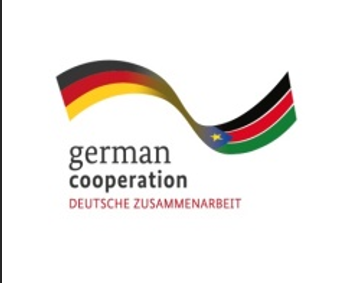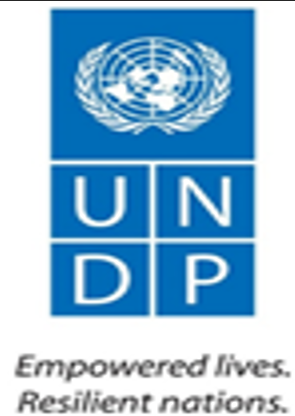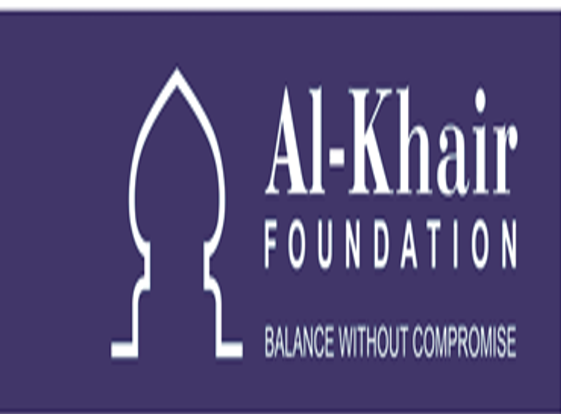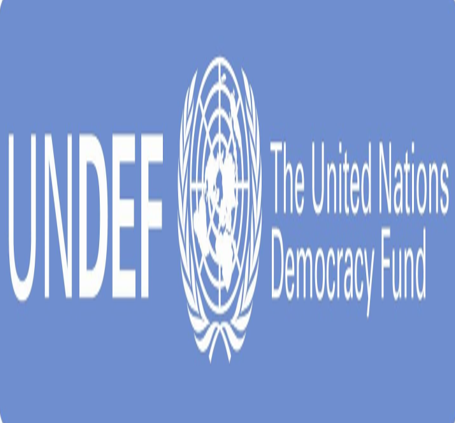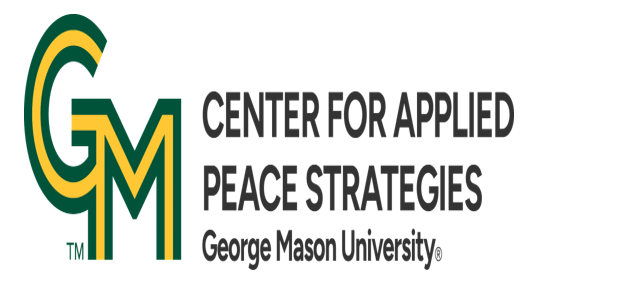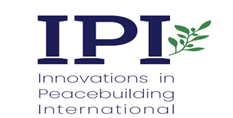About GREDA
Organization Background
Grassroots Relief and Development Agency [GREDA] is a charitable humanitarian relief and developmental non-profit making, non-political, non-racial and non-sectarian organization founded in Western Equatoria State and officially registered by the State Ministry of Social Development on September 29th 2011.
GREDA is registered by the National Ministry of Justice and Constitutional Development Republic of South Sudan and licensed by the Relief and Rehabilitation Commission (RRC) to operate all over South Sudan as a humanitarian relief and developmental organization.
Our Vision
Enhance Peaceful, Educated, Productive, Vibrant Civil Society groups and Prosperous Communities in South Sudan.
Our Mission
Promoting Peacebuilding, Education, Food Security, Health/Sanitation/Water, Humanitarian Relief, GBV Protection, Microfinance and mitigating impacts of climate change in South Sudan
Our Goal
Enhance Sustainable Peacebuilding, Education, Food Security, Health/Sanitation/Water, Humanitarian Relief, GBV Protection, Microfinance and mitigating impacts of climate change in South Sudan
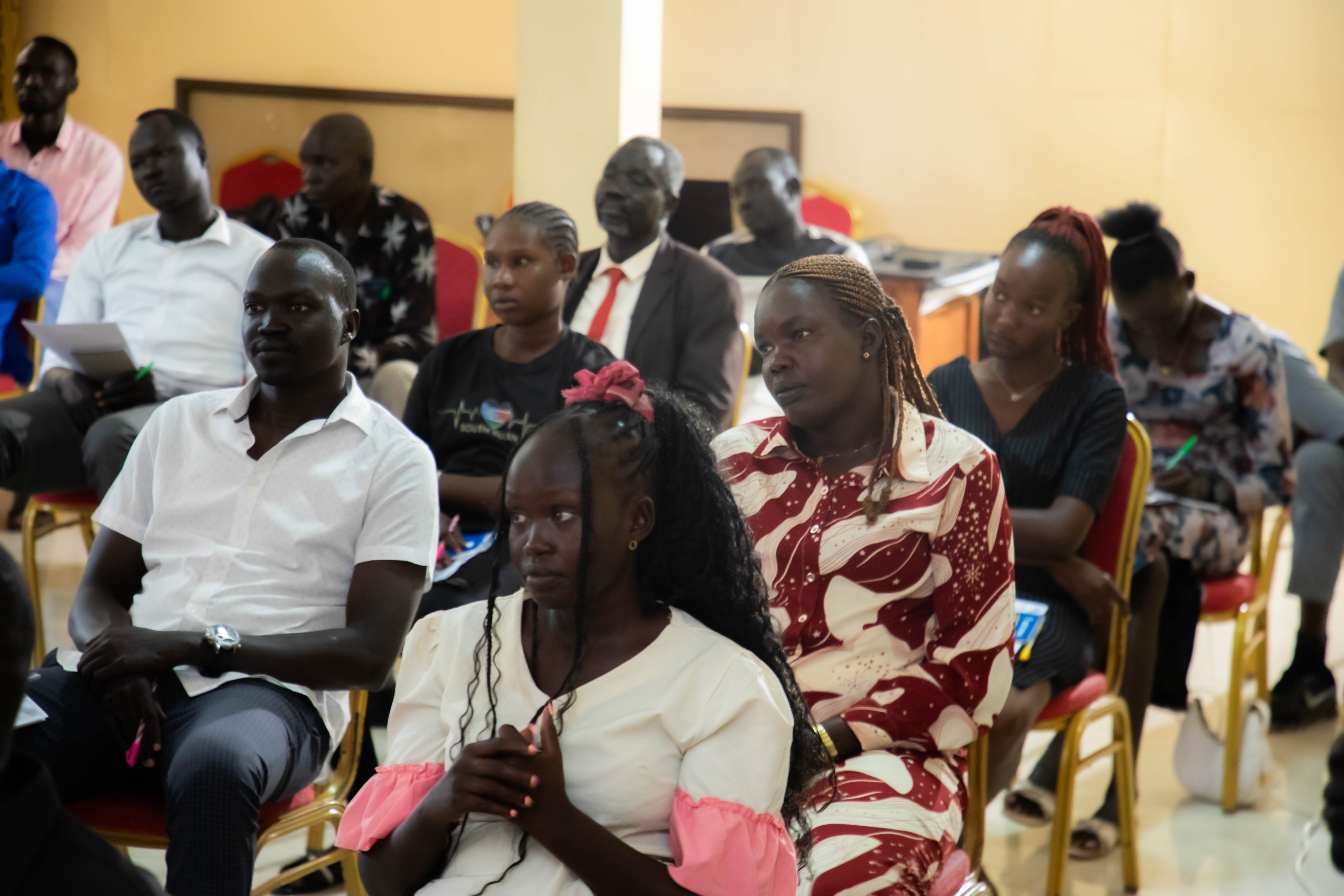
South Sudan Context
South Sudan attained Independence from Sudan on July 9, 2011 and became the newest country in Africa and the world. Just two years after independence, a devastating conflicts erupted between SPLM-IG and SPLM-I0 over leadership, resulting in atrocities of the highest magnitude committed on both sides.
Nearly 400,000 people were killed. Over 2 million people displaced as internally (IDPs), and 2.2 million people fled into neighboring countries as refugees. Critical infrastructures like healthcare centers and schools were destroyed, and the economy spiraled downwards. The South Sudanese Pound (SSP) depreciated uncontrollably—at one point, 1 USD equaled SSP 5700 and continues to flatuate.
Out of country’s 11 million population, over one-third are displaced internally or living as refugees. 70% of adults are illiterate, which perpetuates cycles of poverty and conflicts, including cattle raiding, abductions of women and children, and revenge killings.
Approximately 2.8 million children are out of schools due to poverty and conflicts. These include children of the poorest IDPs, returnees, refugees, war widows, single mothers, and persons with disabilities—families unable to afford school fees or even basic enrollment.
Women and girls suffer the brunt of the crisis, facing forced marriages, sexual violence, and rape use as weapons of war. Children between the ages of 10-17 have been exploited for child labor, carrying ammunition, and even recruited as child soldiers.(report of UNICEF in 2018)
Despite the 2018 peace agreement, the legacy of war persists. Proliferation of small arms has led to a rise in intercommunal conflicts, including revenge attacks, cattle raiding, and abductions. From 2018 to 2024, over 9 million people still depend on humanitarian assistance due to years of conflicts, climate shocks, chronic poverty, and weak essential services.
GREDA a committed non Governmental organization; is addressing short and long term challenges in South Sudan/Sudan through focused key thematic areas. Our work spans from the peace building, Education , Agriculture, healthCare/sanitation, gender protection, climate resilience and humanitrain relief. we aim to empower poorest communities to enhance their resilience and promote sustainable development at the grassroots levels. Hunger now threatens more than half of the population. The need for urgent humanitarian relief and sustainable development programs is critical—especially for IDPs, returnees and refugees war widows, single mothers, and people with disabilities—to foster recovery, dignity, and peace in South Sudan/Sudan.
The Thematic Areas of Our Focus
Peacebuilding & Governance
We work at the grassroots levels to empower communities with the knowledge, skills, and platforms necessary for lasting peace and good governance. Our programs focused on:
- Promoting peace dialogues and reconciliation to resolve long-standing intercommunal and ethnic conflicts on cattle reading/rusting/theft, revenge attacks/killing, women/child abductions, farmers and cattle keepers conflicts.
- Raising awareness on human rights, good governance and public participation to encourage democratic engagement.
- Training local leaders, youth, and women in nonviolent communication, negotiation, and mediation techniques.
Education
We are working on education, setting strong foundation for a better future. Our initiatives aim to increase access to quality education, reduce dropout rates, and promote inclusive learning for children and youth, especially girls and displaced children. We support teacher training, school rehabilitation, and the provision of learning materials in underserved communities.
Agricultural Food Security & Nutrition
We promote sustainable agriculture by supporting local agriculture food production and supporting farmers with training, improved seeds, tools, and climate-resilient practices. Our programs aim to increase household food security, agro-businesses and improve nutrition outcomes through diversified crop production, home gardening, and awareness on healthy eating habits.
Healthcare & Water
Access to basic healthcare and clean water is essential to survival. We work to improve health outcomes by strengthening community health services, providing essential medical and water purification supplies and drilling boreholes to increase access to clean drinking water and proper sanitation facilities to reduce waterborne diseases. funded by vitamins Angels USA
GBV Protection
We are dedicated to the prevention of Gender-Based Violence and the protection of survivors through psychosocial support, legal assistance, awareness campaigns, and safe spaces. Our programs also focus on child protection from harmful cultural practices such as early force child marriages and community sensitization to challenge harmful cultural norms and ensure safety for all (women, girls and children).
Humanitarian Relief
South Sudan and Sudan are conflicts prone countries. We are providing life-saving humanitarian support including food aid, shelter, non-food items (NFIs), and medical supplies to conflicts and disaster-affected populations. We respond swiftly to emergencies with dignity and compassion to help communities recover and rebuild.
Climate Change
Climate change continues to threaten livelihoods and ecosystems. We support community-based climate adaptation strategies such as reforestation, sustainable land use, and disaster preparedness to reduce vulnerability and strengthen resilience.
Microfinance
Economic empowerment is key to lasting peace and development. Through our microfinance programs, we provide small business loans to income generating saving groups, and financial literacy training to enable women, youth, and vulnerable families to build sustainable livelihoods income, supporting the youth fishing groups with fishing nets, canoes to enhance the food security.
Our Impact
Youth Leaders Trained
Malnourished Children Supported
Farmers Empowered
Houses Constructed
Our Projects
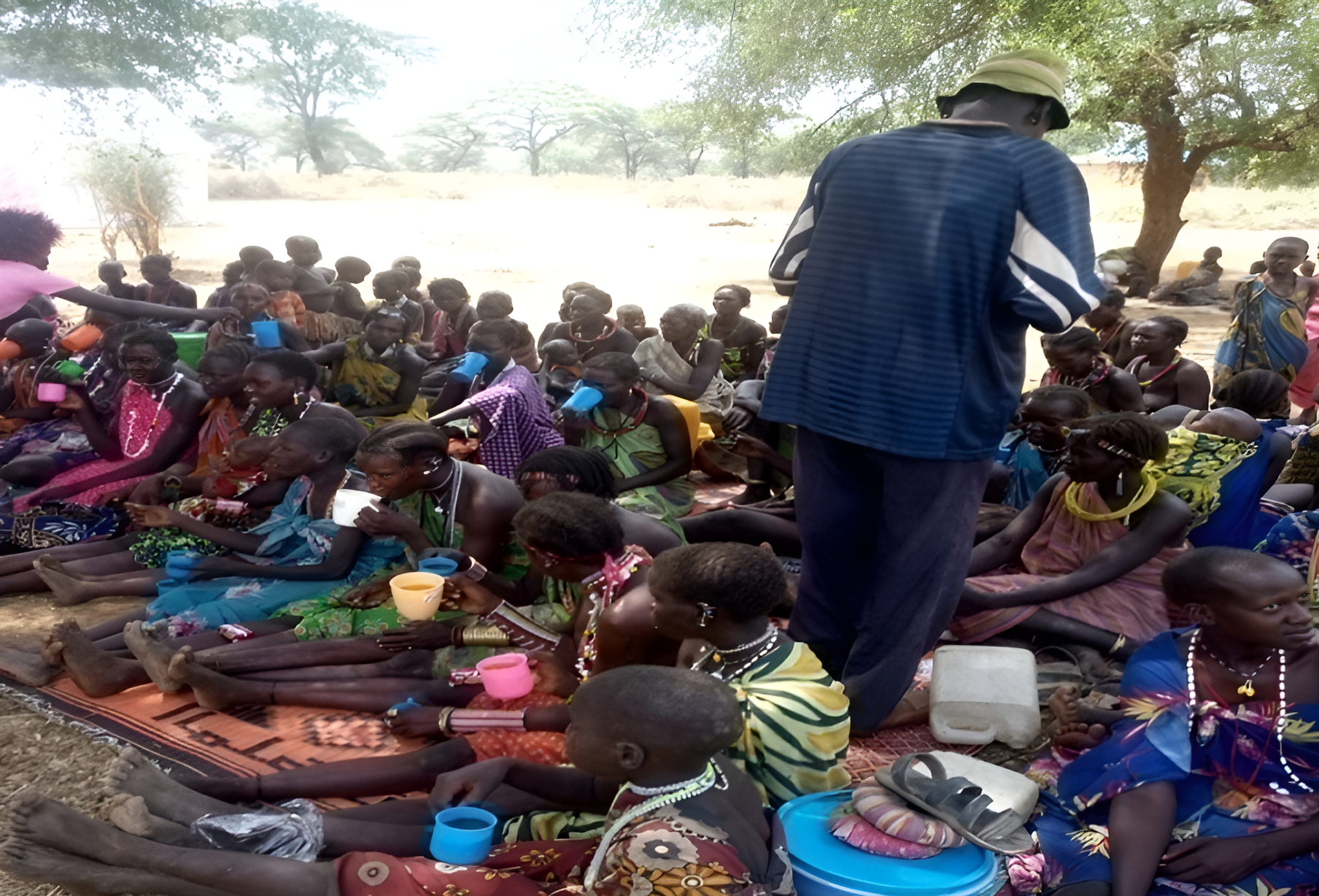
GBV Prevention & Support
2525 survivors of the GBV (495 men, 1248 women, 551 girls and 231 boys) in three Payams in Kapoeta North were jointly trained to respond to prevent the reoccurrences of the GBV in Kapoeta North County. They were also trained on different Arts and Handcraft such as bed sheets making as trauma healing mechanism.Local joint GBV taskforce with members comprising men, women, girls and boys formed working together on the prevention of GBV against women and girls with the local authorities in Kapoeta North County
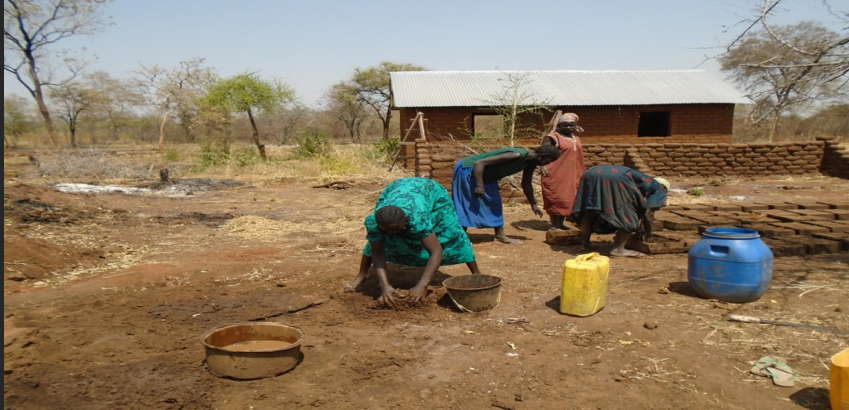
Low Cost Housing
50 units of two roomed houses with sizes 8 meters by 4 meters constructed for 50 households of widows/orphans and single mothers/children in Mundri East County.Low cost accommodations are constructed and provided to the 50 homeless widows/orphans and single mothers/children in Kedi’ba Headquarter of Mundri East County.
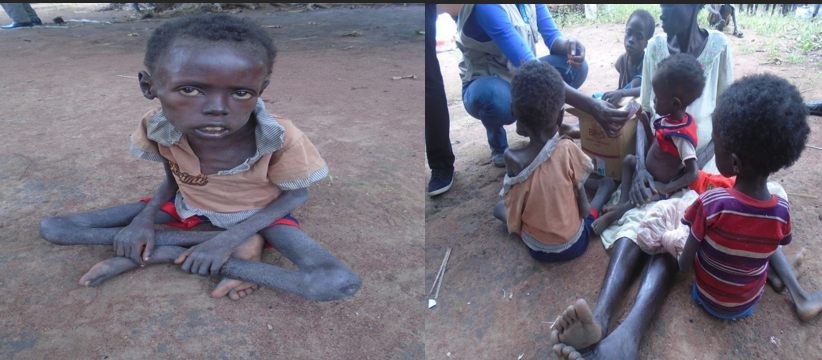
Nutrition Support
Vitamins were distributed to 15000 malnourished children, old aged persons and persons with disabilities in the households of IDPs, returnees, refugees, widows/orphans, single mothers/children, pregnant/lactating mothers.Funded by Vitamin Angels USA

Agricultural Empowerment
Inputs to Agro-Dealer Groups delivered included: 1. Assorted seeds and agricultural hand tools. 2. Sorghun threshers and maize sheller machines. Strengthen local food production, post-harvest, storage, marketing, chain functioning and income generations and food security resilience in Akobo County in Jonglei State. Above: Assorted income generation equipment delivered to 750 Village Saving Loans Association
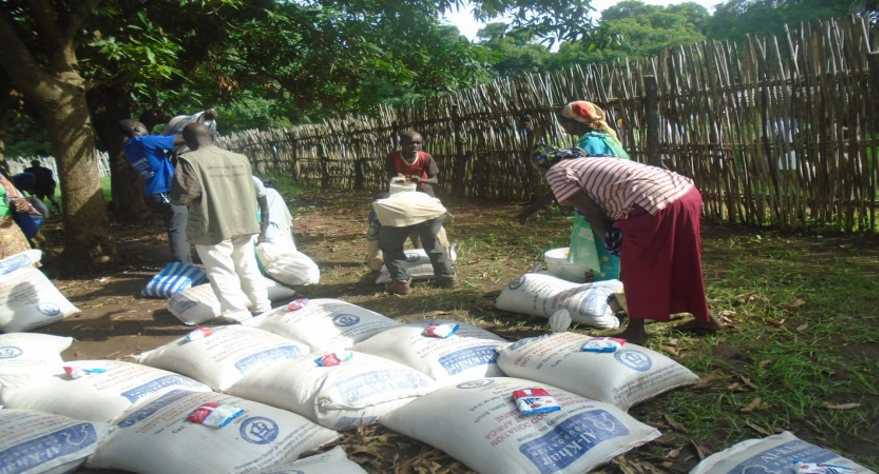
Humanitarian Relief
South Sudan returness and Sudanese refugees from Sudan war receiving relief food in Abeyi Adminstrative area Most of the beneficiries are war widows,single mothers/children, pregnant/Lactating mother, children below 5 years, old aged persons and persons with disabilities in dire need of food and non-food humantrian relief.
Our Impact
Youth Leaders Trained
Malnourished Children Supported
Farmers Empowered
Houses Constructed
Contact Us
Get in Touch
Follow Us
Our Partners
We worked with support of trusted donors to maximize our impacts
